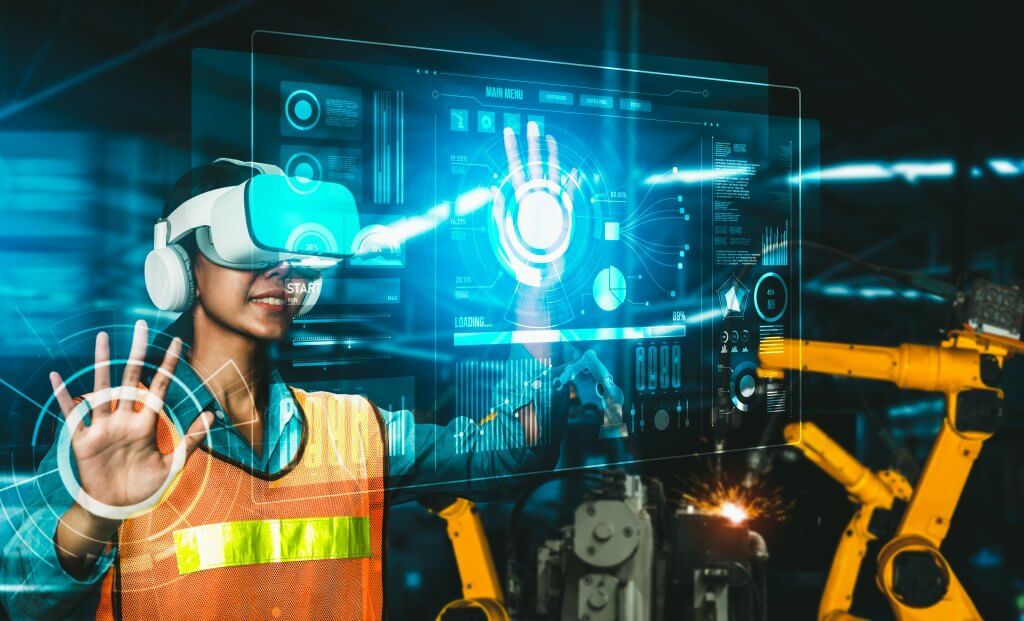April 2, 2024
In today’s rapidly evolving technological landscape, few industries are undergoing as profound a transformation as construction and design. Artificial Intelligence (AI) is not just a trendy buzzword—it is a driving force behind innovations that are reshaping how buildings are conceived, constructed, and maintained. From the initial design phase to ongoing management, AI is revolutionizing the construction sector by boosting efficiency, improving sustainability, and unlocking new creative possibilities.
AI Optimized Design Processes: Transforming Architecture and Engineering
Traditionally, architects and engineers relied on experience and intuition to develop building designs. However, AI is changing the way designs are created. By analyzing large datasets, AI optimizes designs for structural integrity, energy efficiency, and cost-effectiveness. Generative design techniques powered by machine learning allow AI to explore countless design possibilities, pushing the boundaries of creativity and functionality. The result? Buildings that are smarter, more efficient, and more innovative.
AI-Powered Project Management: Streamlining Construction Operations
Managing complex construction projects has always involved juggling multiple tasks, tight timelines, and resource allocation. AI-powered project management tools streamline this process by forecasting project timelines, identifying potential bottlenecks, and optimizing resource use. Leveraging predictive analytics, these tools help project managers anticipate risks and proactively address issues, ultimately leading to smoother project execution and cost savings. AI is empowering project managers to make smarter decisions, which in turn drives greater efficiency and reduces delays.
The Future of Construction Automation: AI Robots and Drones
AI is revolutionizing the physical aspects of construction through automation. Robots, equipped with AI capabilities, are performing tasks such as bricklaying, welding, and site surveying with greater precision and speed. Drones, also powered by AI, are being used to monitor construction sites in real-time, improving productivity and safety. These technologies not only speed up construction timelines but also reduce human intervention in hazardous environments, improving overall safety standards.
AI-Driven Predictive Maintenance and Sustainability in Construction
AI-driven predictive maintenance is transforming how building systems are managed. By analyzing data from sensors embedded in infrastructure, AI can predict when maintenance is needed, allowing for timely interventions that prevent costly downtimes. In addition, AI plays a crucial role in promoting sustainability by optimizing energy consumption, minimizing waste, and helping teams select eco-friendly materials. The technology ensures that buildings are not only more efficient but also more environmentally friendly.
Enhancing Safety and Compliance with AI Technology
Safety is a critical concern on construction sites, and AI is playing a major role in improving safety standards. Through computer vision algorithms, AI can analyze video feeds from cameras on construction sites to detect safety hazards in real-time. This proactive approach helps prevent accidents and ensures compliance with safety regulations. By identifying risks before they become critical, AI contributes to safer working conditions and protects both workers and valuable assets.
A Future Shaped by AI
AI’s impact on the design and construction industry is both profound and far-reaching. From optimizing design processes and automating construction tasks to improving safety and promoting sustainability, AI is driving unprecedented innovation. As AI technology continues to advance, its role in shaping the future of the built environment will only become more critical. By embracing AI-driven solutions, the construction industry is paving the way for a new era of smarter, more sustainable infrastructure—laying the foundation for a brighter tomorrow.
Learn about the use of AI in contract document management by viewing this free webinar: Artificial Intelligence: Rhetoric and Reality
Save time and minimize risk with the most trusted contracts in the construction industry – powered by AIA Contract Documents’ next-generation platform, Catina. Request a Demo Here
AIA Contract Documents has provided this article for general informational purposes only. The information provided is not legal opinion or legal advice and does not create an attorney-client relationship of any kind. This article is also not intended to provide guidance as to how project parties should interpret their specific contracts or resolve contract disputes, as those decisions will need to be made in consultation with legal counsel, insurance counsel, and other professionals, and based upon a multitude of factors.

